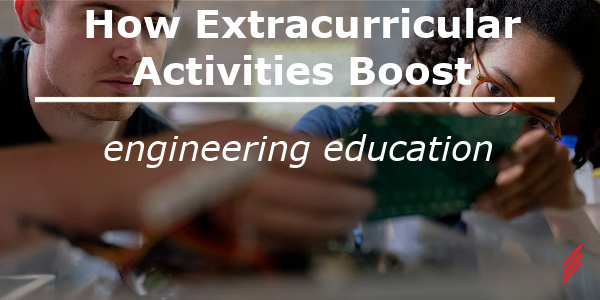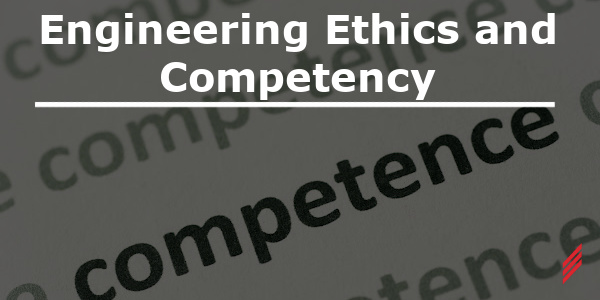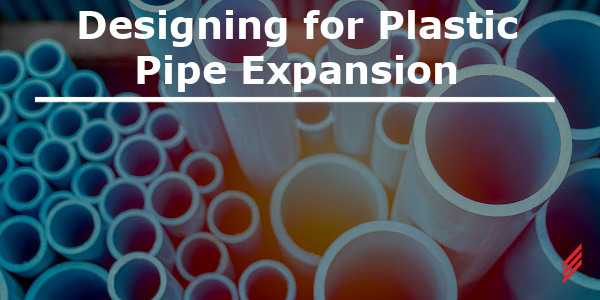How Extracurricular Activities Boost Engineering Education
by Cameron Rose on Aug 26, 2025 10:30:00 AM

Extracurricular activities can play a major role in helping students and young professionals strengthen their understanding and retention of knowledge. By offering hands-on experiences, teamwork opportunities, and leadership development, these activities extend learning far beyond the classroom. They also provide a break from academic or workplace stress, making it easier to stay focused, motivated, and engaged. For engineering students especially, extracurriculars can turn abstract concepts into practical skills that stick.
Joining UConn’s Formula SAE Team: Hands-On Engineering Experience
As a student at the University of Connecticut, I am surrounded by a wide range of extracurricular activities. This past fall, after several recommendations, I joined the UConn Formula SAE team. For those unfamiliar, every year the club designs and builds a Formula-style race car to compete against universities around the world.

What started as an extracurricular quickly turned into one of the most valuable learning experiences I’ve had. I’ve gained not only technical knowledge but also meaningful connections with classmates, advisors, and industry professionals.
Why Hands-On Work Beats Textbooks for Retaining Knowledge
I’ve always been a visual learner. Textbooks and slideshows don’t always provide the depth I need to truly understand a subject. Getting hands-on with projects like building racecars allows me to connect theory with practice. At the Formula shop, I’ve developed skills in circuit design, battery management systems, and wiring harnesses while working side-by-side with peers and faculty.
Talking through problems in real-world scenarios has been one of the best ways for me to learn. Working as part of a team helps improve communication, boosts productivity, and encourages us to approach problems from multiple perspectives—something that can be harder to achieve when working alone.
Internship Experience at Hallam-ICS: Applying Classroom Knowledge in the Field
Another place where I’ve gained practical experience is during my internship at Hallam-ICS. Over the past two summers, I’ve worked on-site at a variety of locations, where I’ve seen firsthand how classroom knowledge is applied in the real world. These site visits have given me valuable exposure to equipment layout, device placement, and the overall design process.
Learning Electrical Codes Through Real-World Application
A major part of my internship has been learning to read and interpret electrical codes like IECC 21 and NEC 20. For an electrical engineer, it’s not just about knowing the code—it’s about understanding why the code exists. Context is critical. Seeing device placement in the field makes it easier to interpret the codes and understand their purpose, whether it’s for safety, efficiency, or energy conservation. This real-world context has already improved the way I approach design work and will continue to guide me as I take on more responsibility.
On-Site Engineering Lessons: From Pfizer to MIT and Beyond
Most of my site work has taken place at Pfizer’s Groton, CT campus, but I’ve also visited a range of other facilities including the Naismith Basketball Hall of Fame, NEL Hydrogen, MIT, Northeastern University’s Innovate Campus, and Smith College. I even had the chance to work at a pump station in Stonington, CT—just down the road from my house.

During these site visits, I’ve been involved in collecting initial conditions for proposals and design projects. I’ve also sat in on project management and construction administration meetings. These experiences have given me insight into how projects move forward and the many people involved, from architects and electrical contractors to project managers and clients.
How Extracurriculars and Internships Build Lasting Knowledge
While I’ve always enjoyed my coursework, the combination of extracurricular involvement and internship experience has taken my learning to the next level. Applying knowledge in hands-on environments—whether through designing a racecar or walking through a job site—has helped me retain information, build confidence, and gain practical skills that textbooks alone can’t provide.
For me, extracurriculars and internships have proven that the best way to learn is often by doing. And the more engaging and fun the work, the more likely it is to stick.
About the Author
Cameron Rose is an electrical engineering intern in the Middletown, CT office. He works with electrical engineers, designers, and project managers in MEP consulting and design. He is currently an Electrical Engineering student at the University of Connecticut.
About Hallam-ICS
Hallam-ICS is an engineering and automation company that designs MEP systems for facilities and plants, engineers control and automation solutions, and ensures safety and regulatory compliance through arc flash studies, commissioning, and validation. Our offices are located inMassachusetts, Connecticut, New York, Vermont, North Carolina, Texas and Florida and our projects take us world-wide.
You May Also Like
These Related Stories

Engineering Ethics and Competency

5 Examples of Good Engineering Practice Exceeding Minimum Requirements of Building Codes



No Comments Yet
Let us know what you think